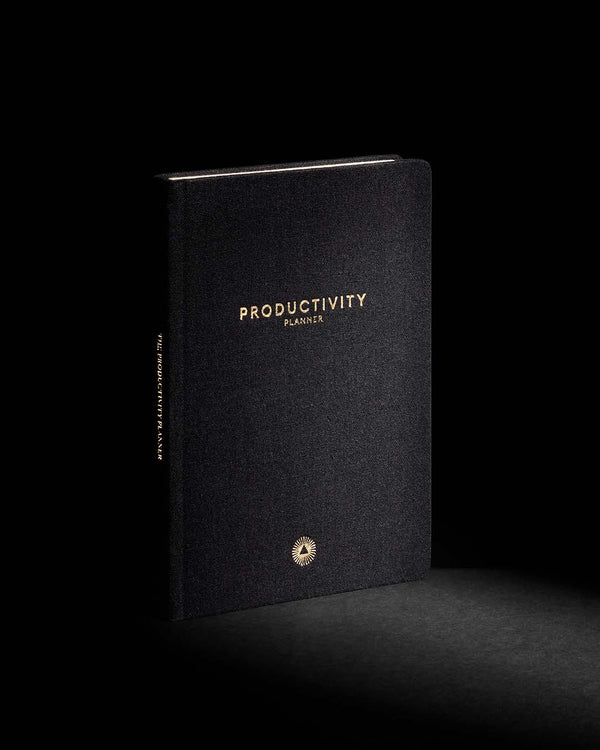Productivity vs. Focus

Is there a difference between productivity and focus? Do you need focus to be productive or is it the other way around?
Should we stop thinking so much about productivity and start thinking more about focus?
If you’ve landed here, you’ve probably already mastered all the “regular” productivity tips that advise you to polish your daily schedule and get organized, and now you’re looking for a fresh perspective.
In this article, we’ll discuss productivity versus focus and answer some of this topic’s most important questions.
What Does It Mean to Be Productive?
Productivity is a term we use to describe efficiency, production, or output.
While this definition may sound a bit dry, we all know that it takes a lot of creativity and inspiration to actually be productive.
When productivity provides us with feelings of reward and success, this stimulates intrinsic motivation. The very joy of being engaged in an activity strengthens our inner drive to participate in that activity. It’s like a self-driven vehicle.
But as we all know, productivity can be driven by external rewards, too. We are motivated to go to work and feel obliged to show up on time even when we don’t feel like it. The paycheck, relationships within the team, and our feelings of responsibility towards other people keep us accountable.
Yet, research shows that external rewards seem to be far less important for productivity than internal motivation. If we don’t personally value what we do, external rewards mean little.
To sum up: productivity is efficiency, production, and output, driven by inner motivation to participate in an activity.
How does focus fit into this equation?
Let’s see what the question of productivity versus focus is all about.
What Is Focus?
Simply put, focus means selecting between important and unimportant things in any given moment and eliminating distractors from our attention span. There is no focus without saying “yes” to some stimuli and “no” to others.
Every time we want to be productive working on a certain task, we need to say “no” to all the attention-grabbers, and “yes” to the meaningful tasks ahead of us.
Process vs Result
Focus isn’t a given, it takes time and practice. Taming our concentration in an environment full of distractions is a demanding task.
We often mistake focus for its end product, productivity, embodied in the work we’ve completed and the achievements we’ve accomplished. Focus is much more about shifting your mindset towards personal (and professional) growth.
Productivity vs Focus / Achievement vs Flow
One of the leading theoreticians in positive psychology, Mihaly Csikszentmihalyi, explained in his book, Flow, that focus is a state of deep, long-term engagement with an “object” of our attention. The state of flow is a pleasant and motivating existence outside of the space and time continuum that can’t be affected by ordinary boredom or anxiety.
Achieving this state is a long process of practice, failures, and successes. While we can’t count or measure flow and focus like we can measure productivity, we can still improve it.
Stepping out from the self-tyranny of achievement and focusing on focus is how you actually begin to achieve more.
Once you stop obsessing over the end result and start enjoying the process, everything will fall into place.
Focus and Confidence
Focus makes us feel more connected to the task at hand. As we enter the state of flow and gradually become more successful with the task, we also gain more confidence. Consequently, we become more relaxed and creative in our work, raising our productivity levels.
The bottom line of the productivity vs focus debate is that focus is both the byproduct and the precursor of productivity, but there will be no productivity if we don’t relax and enjoy the process of becoming focused and the state of productivity flow once we get there.
Focus Problems: Why Do We Get Distracted?
Having trouble focusing is a common issue in today’s constantly connected world. When it happens, we tend to blame a variety of factors:
- The work we do isn’t interesting;
- The work is too complex and hard to complete;
- We have too much on our plate so we can’t focus on one thing, etc.
We also use a myriad of strategies for better planning, organization, focus, and so on. But can we resolve our problem with focus if we’re only addressing or acknowledging external factors? What if we turn inwards? Consider the following:
- Achievement anxiety;
- Bad workplace relationships;
- Feeling like our talents, skills, or efforts are being unrecognized.
These and many others could be the internal reasons why we have trouble focusing. Psychology teaches us over and over again to look for meaning within ourselves.
Csikszentmihalyi’s concept of flow doesn’t depend on external factors, rather, it’s about coming to the decision to approach work with interest, engagement, and responsibility. Regardless of whether you’re sitting in a local cafe, office or at your home, when you enter the state of flow, you forget about the outside world and the most menial task can turn into the most meaningful.
Being confident about our decisions and believing in what we do is extremely important for achieving focus. If you’ve already decided to take Monday and Tuesday to work on a project, don’t interrupt your workflow only to answer emails. Don’t let irrational fears rule over your ability to focus and start trusting your guts.
Navigating the Challenges of Modern Reality

First Things First, Digital Declutter
While introspection and confidence are important aspects of focus, we shouldn’t completely neglect our work environment. And for a lot of us, that includes our digital environment.
The digital environment we’re working in is becoming more important than ever. While our morning routine, getting dressed for work, or setting up the perfect office space can do a lot for our productivity and focus, tidying our digital environment is just as important.
A cluttered desktop, unanswered emails, notifications jumping from various channels… this needs to end. Technology should be at our service, not the other way around.
Productivity vs Focus: Choose Focus First
Stop focusing on productivity and start practicing focus. Focusing on output, efficiency, and overall productivity can make us feel insecure, anxious, and competitive. Spending quality time working is what matters, and the results will come as a natural consequence of focus and interest.
The Focus Time Technique is one of the best ways of “practicing focus”. Instead of setting your bar too high, expecting yourself to work continuously for 5, 6, or 8 hours during the day, try splitting your task into smaller 30-minute chunks, followed by 5-minute breaks. Every time you complete 5 of these sessions, you reward yourself with a half-an-hour break.
Accept the Concept of Growth Over Instant Success
Does the idea of lifelong growth and development sound frustrating to you? It’s time to change your perspective.
The fact that there’s no shortcut to becoming the “focus master” at the drop of a hat might sound depressing to some people. But that’s the change we’re trying to emphasize: it’s not about winning, it’s about the process and personal growth.
Make Smart Investments
Instead of searching for instant solutions for the focus problem, do your research and make smart investments.
- Start using work-management platforms that help you maintain your focus instead of distracting you.
- Improve your confidence and self-esteem by shifting your mindset into a state of greater positivity: start filling out The Five Minute Journal and replace self-debilitating thoughts with gratitude.
- Start planning your days and weeks with The Productivity Planner. Plan ahead, prioritize your tasks, rely on the Focus Time Technique, and reflect on your experience.
- Make technology work for you, and not vice versa: install website blockers, use cloud office (Google Docs, Open Office, etc), adapt your screen color to please the eye, and so on.
To put a ribbon on our initial productivity vs focus dilemma, we’ll quote Dean Martin and Frank Sinatra: “You can’t have one without the other.”
When we’re focused, we’re usually productive, and, in order to be productive, we need to be focused – it’s simple as that.
Paying too much attention to productivity, efficiency, or output can also be counterproductive in a lot of ways:
- It can make us more anxious and less productive;
- It kills the joy of the work process;
- When it’s driven by external rewards only, it’s literally like running on fumes.
On the other hand, focusing on focus and growth can be a real game-changer. Enjoy the process and have faith in your judgment. The process is much more important than the final result.







